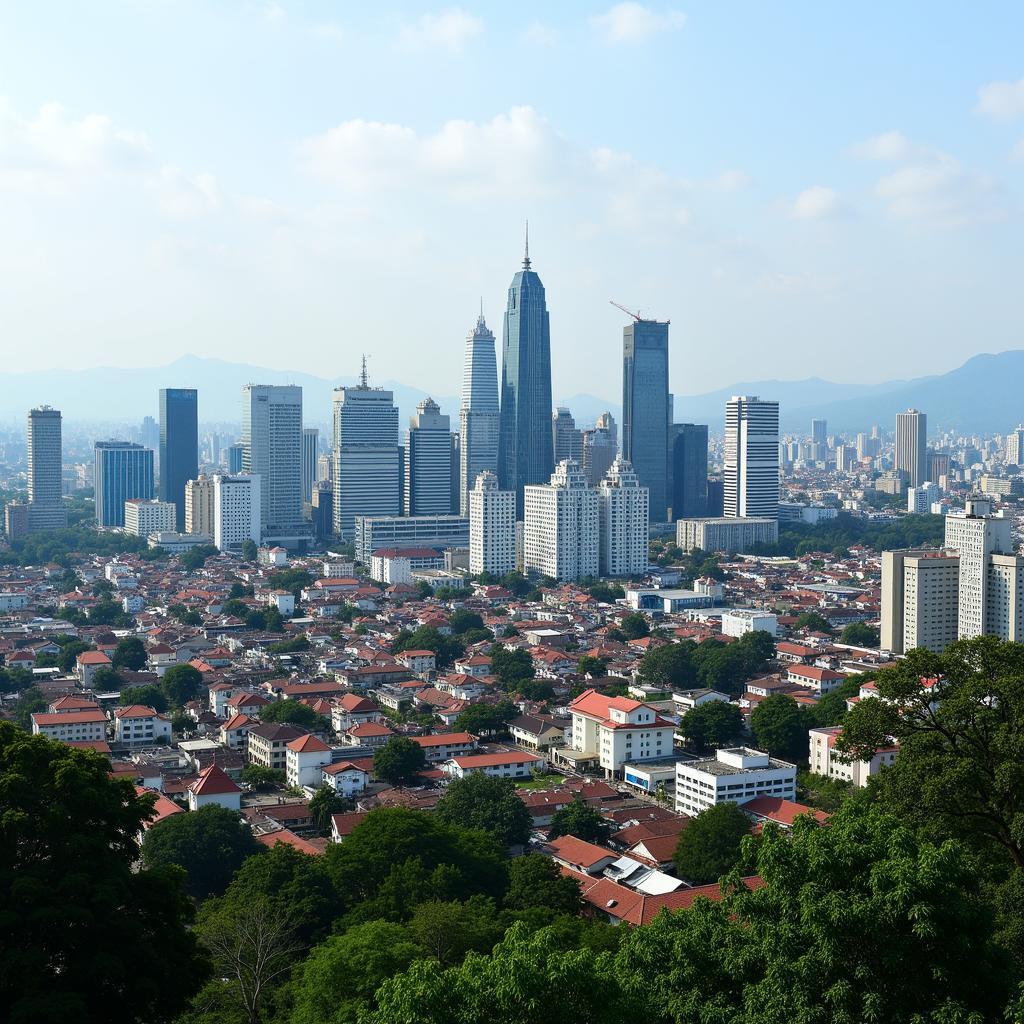Adam Malik, Indonesia’s third Vice President, played a pivotal role in the formation and development of ASEAN. His contributions to regional diplomacy and cooperation during a turbulent period in Southeast Asian history cemented his legacy as a key architect of the organization. Malik’s pragmatic approach and dedication to regional stability helped shape ASEAN into the influential body it is today.
Navigating the Cold War: Adam Malik’s Strategic Vision for ASEAN
The mid-20th century was a challenging time for Southeast Asia. The Cold War was at its peak, and the region was grappling with the legacies of colonialism, internal conflicts, and the threat of communist expansion. In this complex geopolitical landscape, Adam Malik emerged as a strong advocate for regional cooperation. He believed that a unified Southeast Asia could better navigate these challenges and secure a peaceful and prosperous future for its people. Malik’s vision extended beyond mere political alliances; he envisioned a regional organization that would foster economic, social, and cultural ties, creating a sense of shared destiny among the diverse nations of Southeast Asia.
The Bangkok Declaration: A Cornerstone of Regional Unity
Malik’s diplomatic skills were instrumental in the signing of the Bangkok Declaration in 1967, the document that formally established ASEAN. He, along with the foreign ministers of four other Southeast Asian nations – Indonesia, Malaysia, the Philippines, Singapore, and Thailand – laid the foundation for a regional organization dedicated to peace, stability, and prosperity. This declaration marked a watershed moment, signifying a collective commitment to resolving regional issues through dialogue and cooperation rather than conflict.
Adam Malik’s Pragmatism: A Key to ASEAN’s Success
One of Malik’s defining characteristics was his pragmatic approach to diplomacy. He understood the complexities of regional politics and recognized the need for compromise and consensus-building. His ability to bridge differences and find common ground among nations with diverse interests was crucial to the early success of ASEAN. This pragmatism allowed ASEAN to address sensitive issues and forge a path forward, even when member states held differing viewpoints.
Beyond Politics: Fostering Economic and Social Cooperation
While political stability was a primary concern, Malik also recognized the importance of economic and social development. He advocated for increased trade and investment within the region, believing that economic interdependence would further strengthen ties between member states. He also emphasized the need for cultural exchange and people-to-people contact to foster a sense of community and shared identity.
Adam Malik’s Enduring Legacy: A Foundation for Future Generations
Adam Malik’s contributions to ASEAN extend beyond his involvement in its formation. His commitment to regional cooperation and his pragmatic approach to diplomacy have had a lasting impact on the organization’s development and its role in the international community.
A Voice for Peace and Cooperation
Malik’s unwavering belief in the power of dialogue and cooperation continues to resonate within ASEAN. His legacy serves as a reminder of the importance of finding peaceful resolutions to disputes and working together to address common challenges. His vision of a unified and prosperous Southeast Asia continues to inspire generations of leaders and diplomats.
Conclusion
Adam Malik’s significant contributions to the formation and growth of ASEAN have solidified his place as a key figure in Southeast Asian history. His dedication to regional cooperation, his pragmatic approach to diplomacy, and his vision for a unified and prosperous Southeast Asia continue to shape the organization and inspire future generations. Adam Malik and ASEAN are inextricably linked, his legacy a testament to the power of diplomacy and the transformative potential of regional cooperation.
FAQ
-
What was Adam Malik’s role in the formation of ASEAN? He was one of the five founding fathers and instrumental in drafting the Bangkok Declaration.
-
What was Adam Malik’s diplomatic style? He was known for his pragmatism and ability to find common ground among diverse nations.
-
How did Adam Malik contribute to ASEAN beyond its formation? His vision and diplomatic approach laid the foundation for ASEAN’s continued growth and influence.
-
What is Adam Malik’s legacy? He is remembered as a key architect of ASEAN and a champion of regional cooperation.
-
Why is Adam Malik’s story important today? His legacy serves as an inspiration for continued peace and cooperation in Southeast Asia.
-
What were some of the challenges facing Southeast Asia during Adam Malik’s time? The Cold War, post-colonial struggles, and internal conflicts were major challenges.
-
How did Adam Malik view the role of economics in ASEAN? He believed economic interdependence would strengthen regional ties.
Need More Information?
For further inquiries about ASEAN and its history, please contact us:
Phone: 0369020373
Email: aseanmediadirectory@gmail.com
Address: Thon Ngoc Lien, Hiep Hoa, Bac Giang, Vietnam
We have a 24/7 customer support team ready to assist you.
